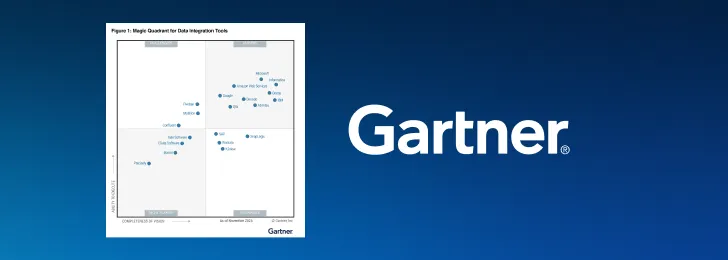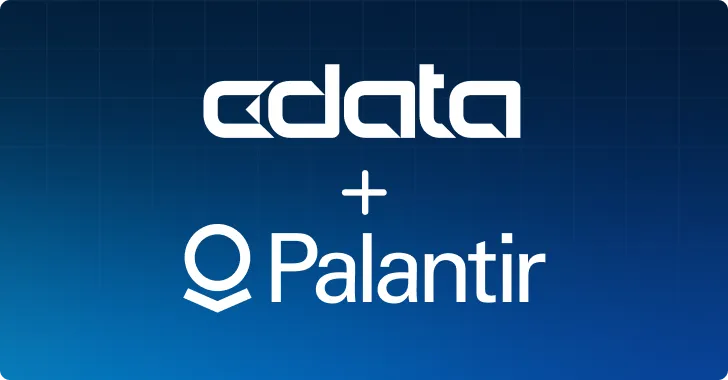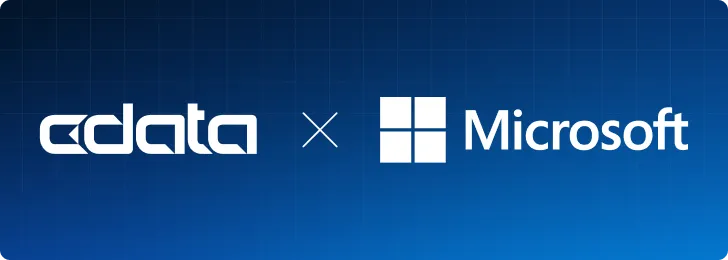Salesforce is the center of your customer experience, whether you use it for your CRM, collaboration, digital marketing, marketing automation, or you are leveraging AI on top of your CRM. You chose Salesforce because it represents the best-in-breed CRM for your business. Now you need the best ways for everyone in your business to connect to and find value from your Salesforce data, no matter which application, platform, or solution they use.
In this article, we discuss the benefits of CData's Salesforce connectivity while highlighting how customers use our solutions to work with Salesforce.
Connecting Salesforce Across the Enterprise
At CData, our Salesforce data connectivity solutions make it easy to connect Salesforce across a broad range of use cases. We provide a range of solutions that augment existing tools and applications with direct Salesforce connectivity, and dramatically simplify common IT tasks like:
Real-Time Analytics & Reporting on Salesforce Data
At the center of sales and marketing activities, organizations need to measure and monitor CRM data constantly. Whether for reporting on customer acquisition costs, pipeline velocity, lifetime value, or other critical metrics, the data stored in Salesforce needs to be easily accessible to business and data analysts.
While Salesforce includes analytics and reporting features, analysts and data engineers frequently work with data in applications outside of Salesforce, either due to familiarity or additional capabilities available within these tools. Our Salesforce Drivers and Adapters directly extend any application or tool with real-time Salesforce data connectivity for these users. Our connectors make Salesforce look like a standard database to your applications, providing complete access to all of the data that your organization has stored in Salesforce directly from the tools that your data teams already use.
Not all situations require real-time data connectivity. Often organizations prefer to consolidate data into a relational database or a data warehouse. The most common reason for this is not performance but to
report on data joined across multiple sources. (e.g. Salesforce data combined with Marketing Automation, Accounting, ERP, etc.)
In either case, CData Sync provides an easy-to-use ELT/ETL data pipeline to support data warehousing. From ongoing data replication from Salesforce to a local relational database to consolidating data from multiple systems to a cloud data warehouse like Snowflake, data engineering teams leverage CData Sync to help deliver critical analytics and reporting to improve business decision making.
Connecting Salesforce with External Data
Organizations inevitably have on-premise or internal data that they would like to access from within Salesforce. This type of integration is possible through Salesforce Connect (formerly Salesforce Lightning), which can connect to a data source as long as it's accessible through a standard OData API.
Fortunately, both CData Connect and CData API Server make it easy to create OData APIs from any configured data source. For example, one of our customers, an industry-leading fleet management company, has configured CData API Server as a gateway to their on-premise SQL Server data. They use API Server to define authentication and the specific tables from SQL Server they want to make available through the OData API, and Salesforce Connect calls those APIs to retrieve data and connect to records from Salesforce in real-time.
Extend SQL Server with Salesforce Connectivity and Bi-directional Sync
Nearly 80% of our customers are using SQL Server in some capacity, many of which have built valuable business processes, reporting, and analytics on top of their SQL Server data. Incorporating Salesforce data into these systems usually means IT teams are tasked with developing and maintaining complex integrations between Salesforce and SQL Server. DBAmp offers a tailor-made, bi-directional sync between Salesforce and SQL server that lets teams build integrations with Salesforce using their T-SQL skills, and even use SSIS and SQL Server stored procedures to push SQL data to the Salesforce platform.
Connecting Salesforce to Critical Business Processes
Your Salesforce data is valuable, but connecting it to your critical business processes often requires costly or challenging API integrations. When Orange County, California needed to integrate their web portal with Salesforce, they were faced with the daunting task of inserting a web order and the included items into Salesforce and then linking those objects based on the unique identifiers that the Salesforce platform returns. The API orchestration capabilities of our ArcESB solution led them to choose ArcESB to manage the integration instead of building the integration and orchestrations themselves. By automating business processes with ArcESB, CData customers are able to easily connect Salesforce to their existing process.
The CData Difference
At CData, we offer a pragmatic approach to solving business problems through universal integration. We believe that tools should adapt to your business's needs, not the other way around. In this article, we discussed various approaches to Salesforce integration aligned to different goals. All of these solutions are backed by CData's engineering, guaranteeing unmatched performance, best-in-class technical support, and extensive technical capabilities, including important integration features like:
Access custom Salesforce entities
Access external objects (using Salesforce Connect)
Free up client resources through query push-down functionality
Leverage the asynchronous Bulk API to read & write large amounts of Salesforce data
Easily define relationships between newly inserted entities and existing entities
These features exist across the spectrum of our connectivity solutions. In addition to the solutions featured above, CData offers JDBC Drivers and ODBC Drivers for working with data in BI, reporting, and ETL tools. Customers can also use our connectors and add-ins to report on Salesforce directly from within Microsoft Excel, Tableau or Power BI. Developers can even build integration with data flow tasks in SSIS, or create custom applications and scripts using ADO.NET Providers or Python Connectors. No matter where or how you want to work with Salesforce data, CData has a simple, easy-to-use data connectivity solution for you.
By providing industry-standard connectivity, CData democratizes Salesforce access, allowing everyone in the organization, from IT professionals & app developers to citizen analysts & data scientists, to work with and find value from the entire Salesforce platform. Check out our Salesforce solutions page to learn more about how our tools can enhance Salesforce integration within your organization.
Explore CData Salesforce Solutions





